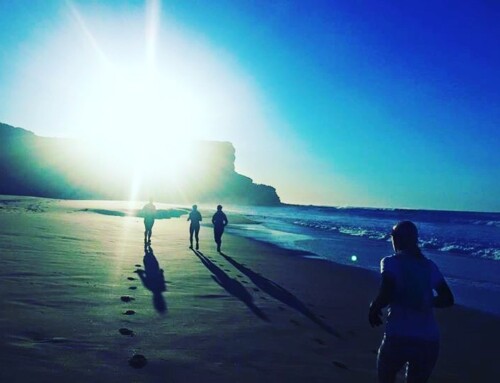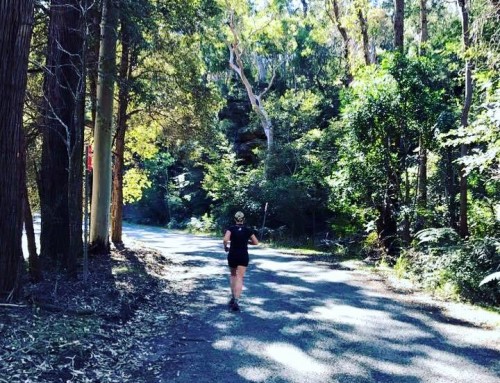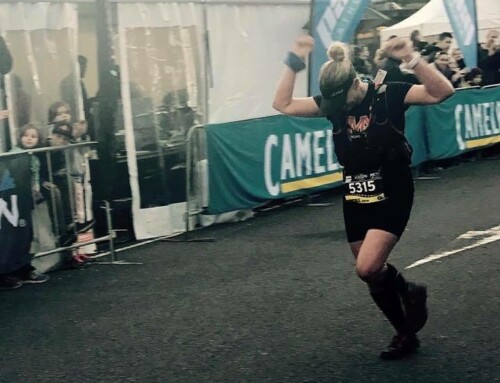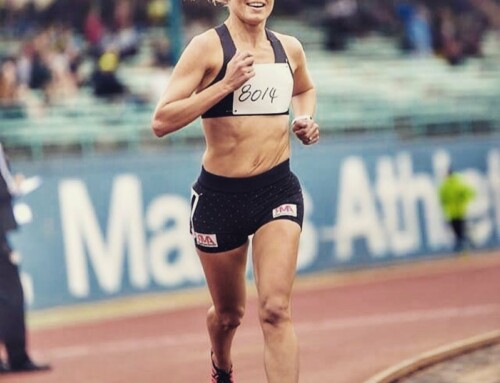I have had a running coach for around 12 months now. There was a few reasons that a running coach was something that I wanted. As I started taking my running more seriously I wanted someone that I could be accountable to. Just like when I used to go to the gym and boot camp style classes, this pushed me more than I would ever push myself.
Having a running coach has taught me that I can achieve a lot more than I thought that I could, that pushing myself harder is worth it and shows in my races and that with a coach I won’t give up nearly as easily as if I didn’t have one. Before I had a running coach I would give up in races. When times got tough there was no one watching except me, and my mind was not as strong as it is now. The only person that I felt accountable to was myself. There was no one else that was going to be analysing my data, and no one else that really did care other than myself what the end time was.
When I decided to get myself a coach leading into this year I was no longer the only person that I was accountable to. I knew that my coach would be checking out my splits and times etc and just where I went wrong or where I pulled it out on race day or during my training. There is always ups and downs and your coach needs to understand what they are to get the best out of you and your training.
Having a coach is kind of like a marriage. It takes commitment, and hard work from both ends. Your coach needs to be someone that you trust, because you are not only going to tell them all the great things, you are probably going to confide in them with all your darkest moments too. You need to find someone who you can relate to and who can get the best out of you in your training, who understands how you like to train and is open to your suggestions as much as theirs.
All of my coaching so far has been done virtually. My coaching involves email and phone contact and my training plan is done in training peaks online software and with my previous coach through dropbox. I would love to have a one on one coach who I can see a few times a week, and although I can drive to see my coach for sessions I haven’t done this yet but plan to in the year ahead.
The best thing about my coaches so far has been that they are just as excited for me in terms of my racing as I am. Both my coaches that I have had have been present before or after my biggest and best events and this makes me so so happy. To be able to share in the success with them at the end of my training journey for an event is very much as rewarding for them as it is for me.
These are some of my tips for choosing a great coach and where to start:
1. Choose someone who understands women. This doesn’t necessarily mean that they have to ‘be’ a woman. My current coach is male, however choose someone who understands the demands on women, particularly mums in training and the juggling we have to go through in life.
2. Choose a coach who is qualified. This means that they hold qualifications in Athletics Australia, or similar with a focus on running training, not that they just love to run. You want someone who understands correct technique, different types of training relative to what you are aiming to achieve in your program, when to rest and when to ramp it up depending on your specific focus.
3. Make your goals realistic. Setting goals with your coach that can be met, perhaps a few short term and then some long term goals to work towards. Always reassessing these goals and making new ones together.
4. Be honest. Don’t tell your coach that you have done training sessions when you haven’t. Be honest. If you are feeling like you just can’t train today tell your coach and why. You are more likely to get the best out of your coach if you are giving the best of yourself to your coach and this includes letting them know how you are feeling and if you can’t do a set workout.
5. Listen to your coach. If your coach tells you to run at a certain pace…listen to them. Don’t double it, and don’t halve it. They have set your workout for a reason and if they are as good as mine they have analysed your data to know just what you can handle or how far you should be pushed (or held back). This is why we have a coach. They set the workout, not us!
6. Give feedback to your coach. I fill in a comment box at the end of my workouts to let my coach know what worked for me and what didn’t, if I found the session tough or not enough or if I was generally feeling crappy. Let your coach know exactly how you felt so that they can adjust your workouts accordingly.
7. Ask for good referrals. When choosing a coach it is good to know someone that has referred them to you. Positive referrals means great coaching and these are the one’s you want. Experience is best.
8. Choose someone that is coaching specific to your desired interest. Some coaches are trained in track and some long distance, some trail running and some all of these things. Do your research and choose a coach that is skilled in the area that you are wanting to work on. If you are wanting to blitz it on the road, it makes sense to have a coach that hasn’t got a focus on trail running for example.
For more information on coaching, you can contact Running Mums Australia’s running coach, Kate at www.coachkate.com.au or if you want a focus on trails, you can contact Brendan on www.upcoaching.com.au







Excellent post. Great info and very insightful.
Reblogged this on Run.Any.Way and commented:
Sharing is caring!
A great read, I have been looking at coaching but was very hesitant about distance coaching but now I am feeling a little more confident and may just bite the bullet
Thanks for sharing